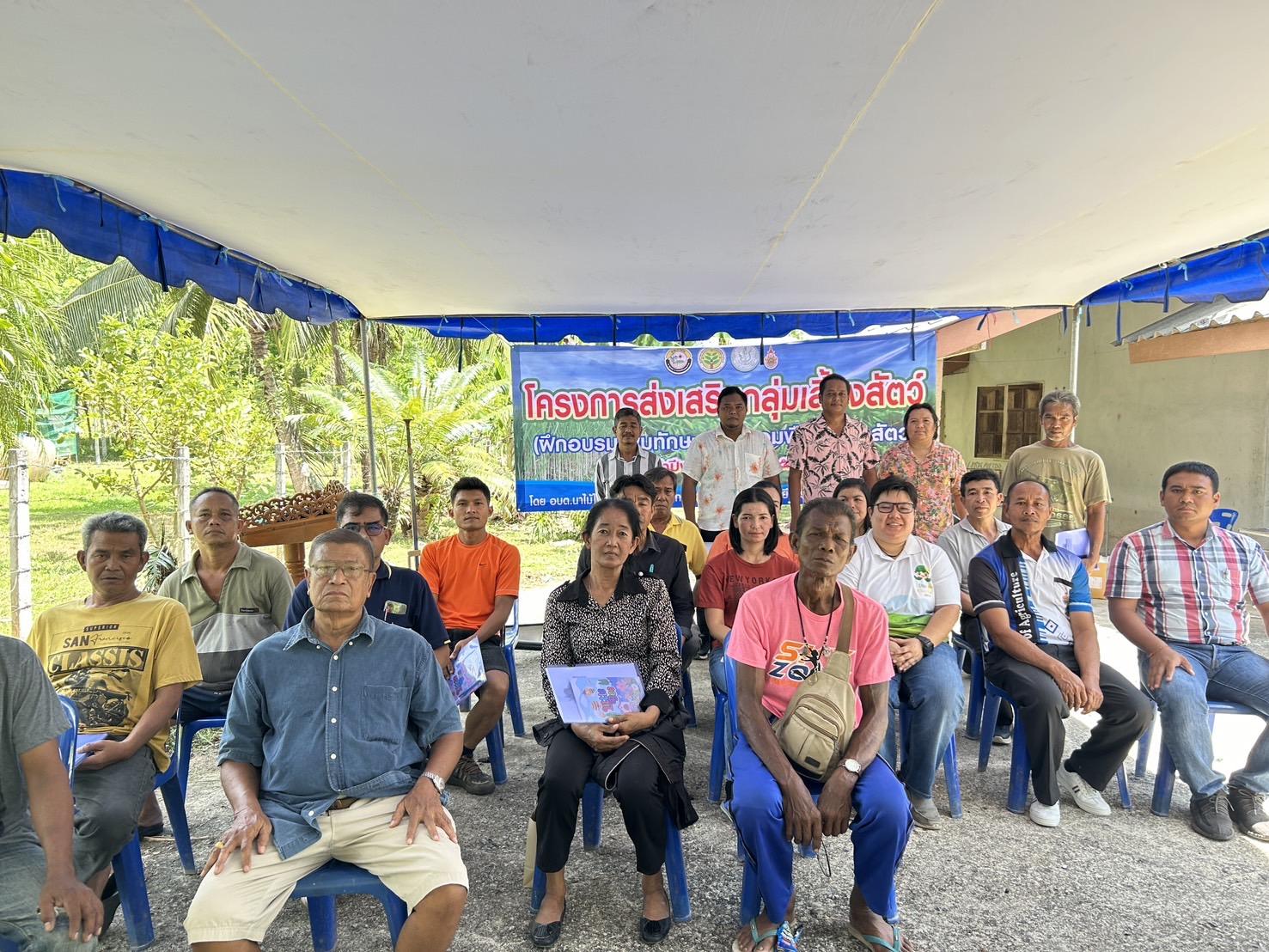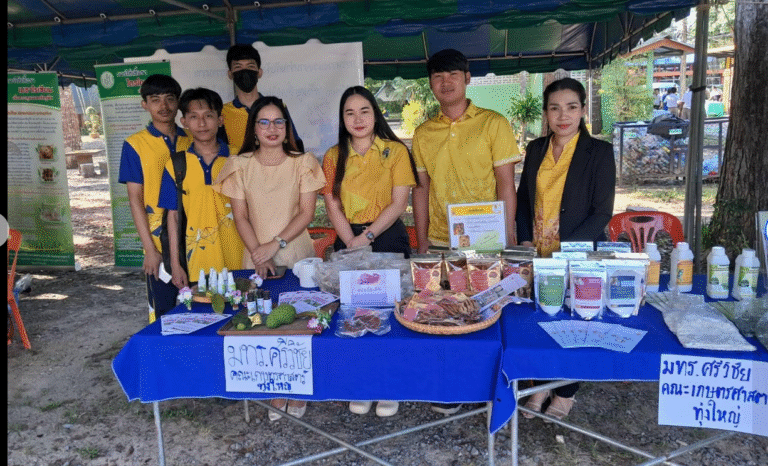Outreach and Engagement
Title:
Reporters: Asst.Prof.Dr. Prapot Maliwan
Assoc.Prof.Dr. Pornsil Seephueak
Asst.Prof.Dr. Nion Chirapongsathonkul
Asst.Prof.Dr. Worawitoo Meesook
Evidence Date: during 2024 Jan-Dec
Related Indicators: 15.3.4
Details:
The Animal Science Program, Faculty of Agriculture, Rajamangala University of Technology Srivijaya, organized a training workshop on forage preservation and alien grass utilization for livestock farmers on 9 May 2024 at Namaiphai Municipality. The activity was led by Asst. Prof. Wuttichai Seephueak, Mr. Boontham Sangkaew, Dr. Nuannoppamon Sriuthai, and Second Lieutenant Chatrachai Sriperm, with the Mayor of Namaiphai Municipality presiding over the opening ceremony. The training focused on enhancing farmers’ understanding of sustainable livestock nutrition, emphasizing the controlled use of alien plant species such as Napier grass (Pennisetum purpureum), which originated from Africa. Trainers discussed how alien grasses, when managed properly, can support livestock feed production without harming local ecosystems. The session also highlighted the importance of monitoring and preventing invasive behavior of alien species in open ecosystems. Through this, participants learned the connection between biodiversity conservation and agricultural productivity. Farmers gained insights into balancing production efficiency with ecological responsibility. The workshop also aimed to strengthen collaboration between the university, local government, and agricultural communities for sustainable management of natural resources.
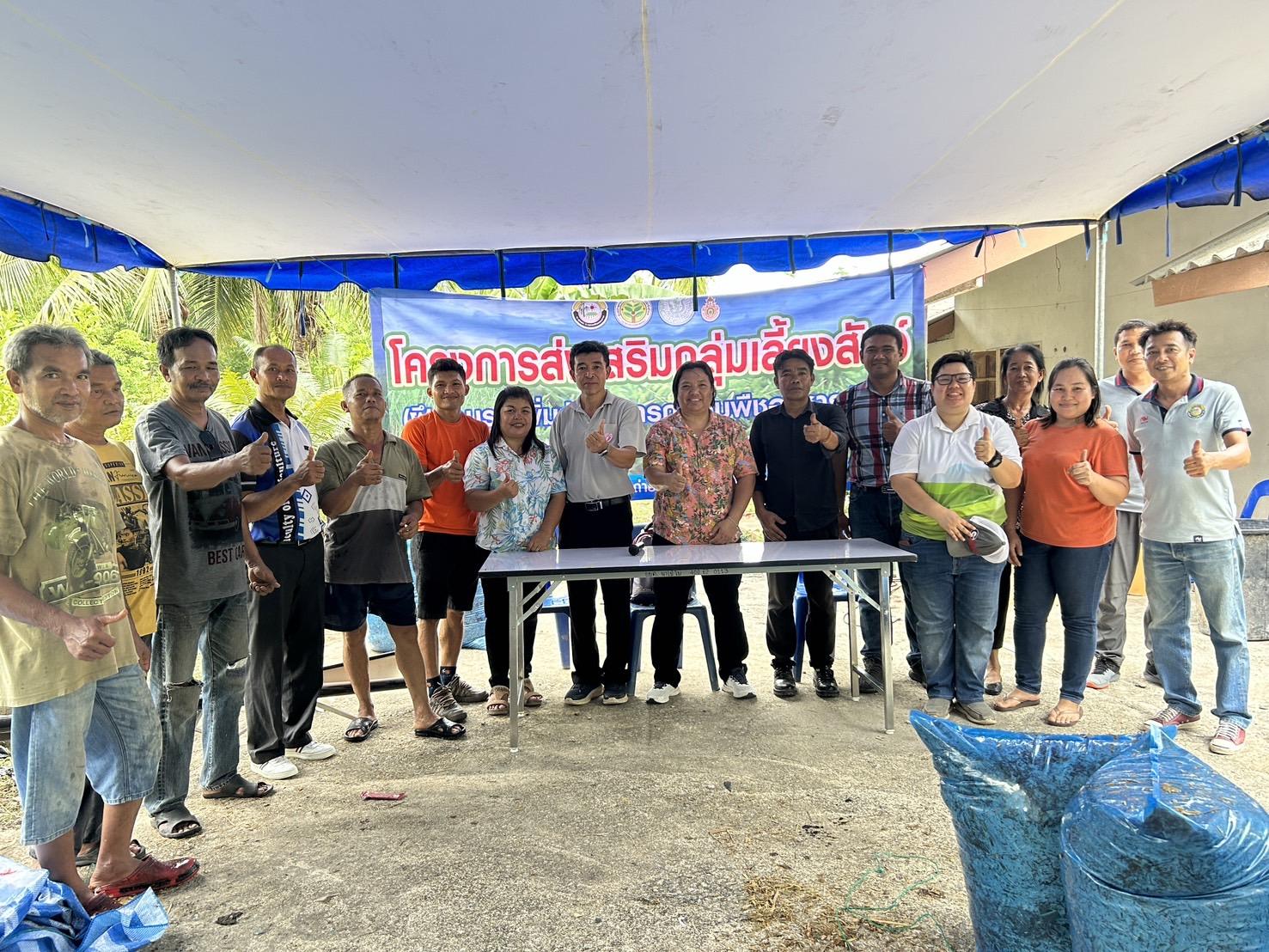
During the hands-on training, participants practiced fermenting Napier grass to improve its nutritional value as a feed resource. Trainers explained that although Napier grass is an alien species, it can be used safely and productively under proper management. Farmers learned to chop the grass, mix it with molasses, and store it in airtight containers to create silage. This process promotes nutrient retention and feed preservation for use during dry seasons. Trainers also discussed how the fermentation process can enhance digestibility and reduce feed waste. Participants were encouraged to avoid overplanting Napier grass in natural areas to prevent ecological imbalance. Instead, they were advised to plant it in designated agricultural plots where it supports sustainable livestock practices. The training combined both ecological awareness and scientific technique, showing farmers that alien species can be beneficial if handled with care. The practical activities fostered active learning and helped participants gain confidence in applying research-based methods.
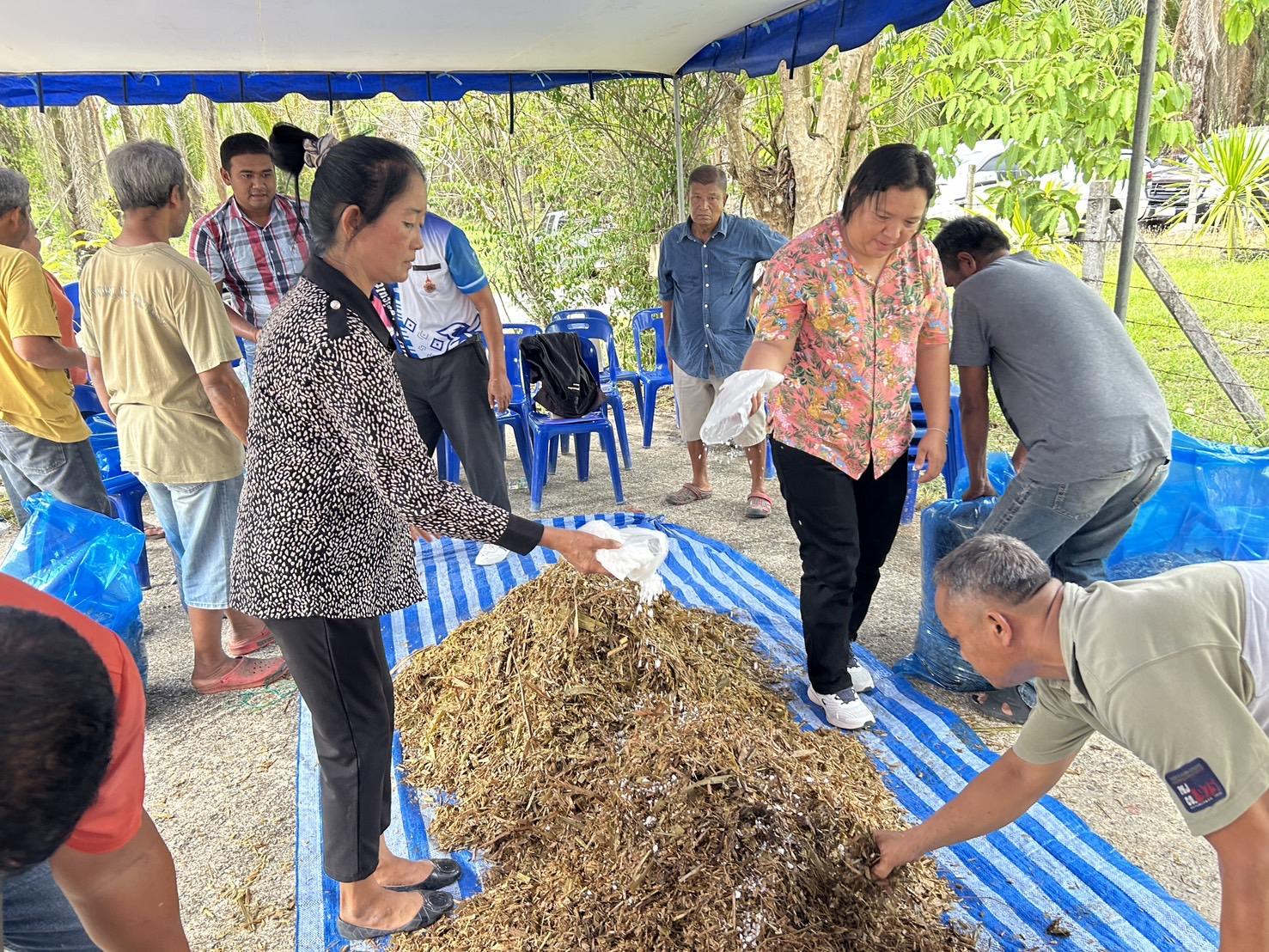
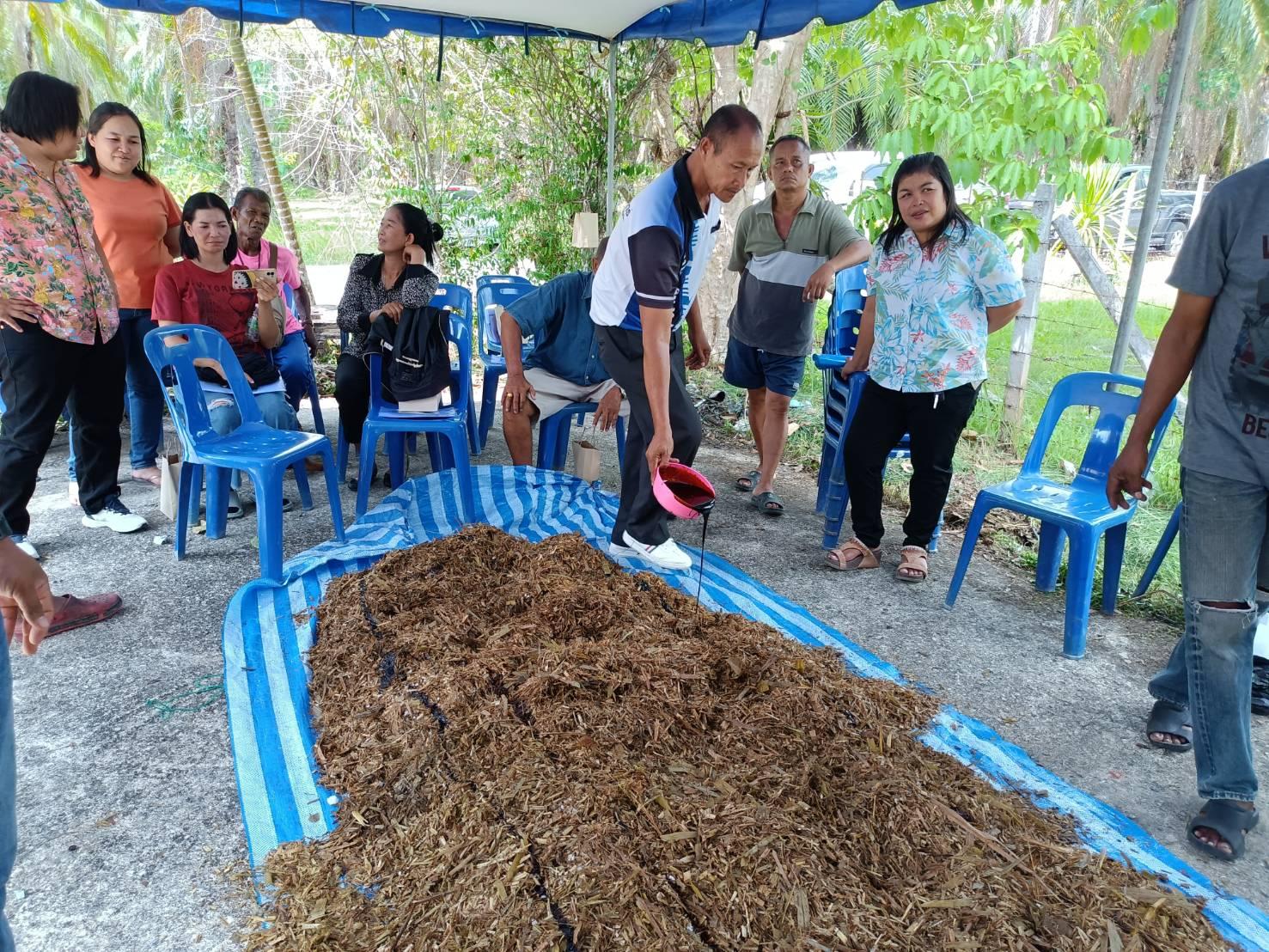
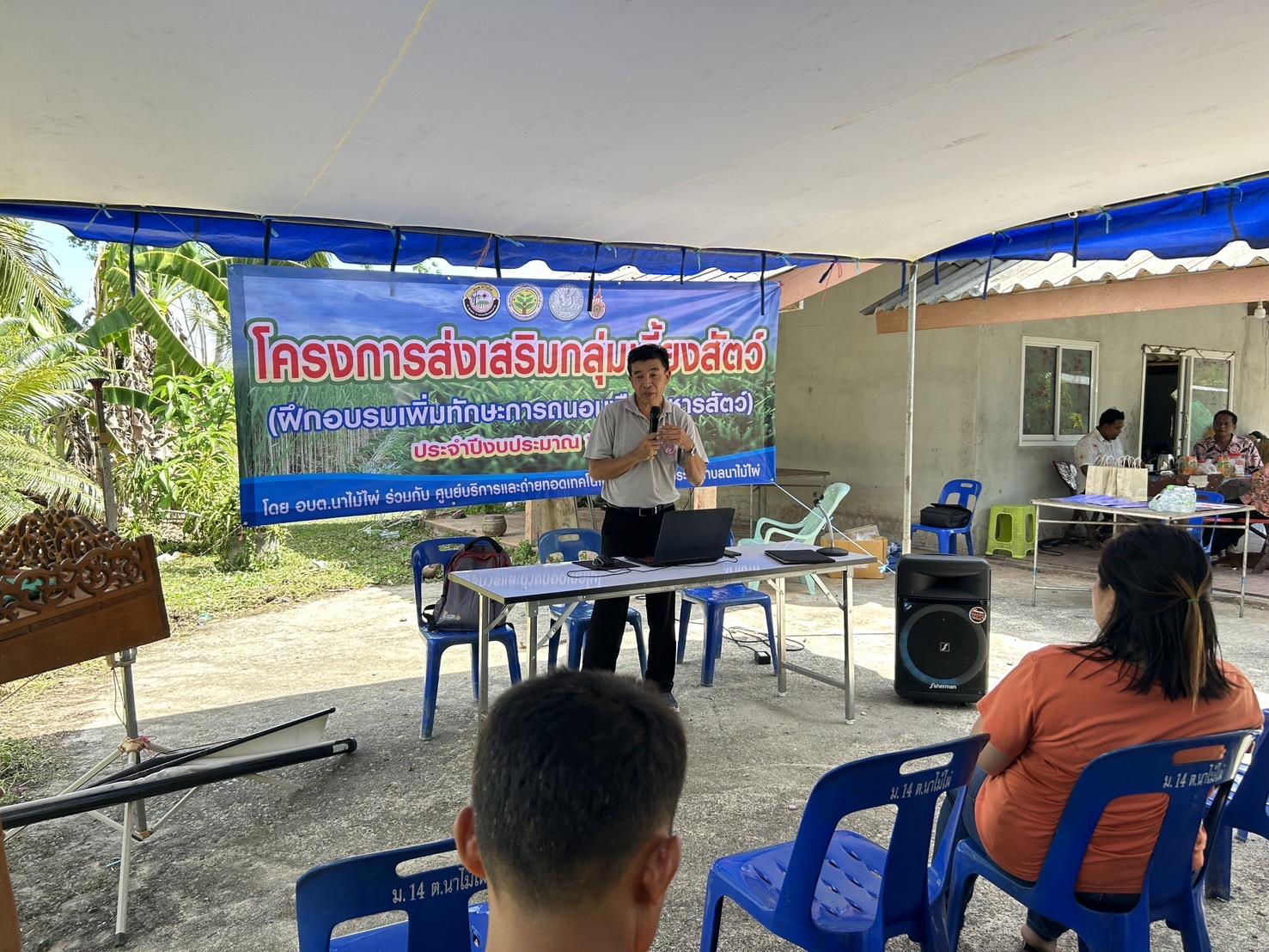
In the final session, participants discussed strategies to maintain ecological balance while benefiting from alien forage plants. Trainers emphasized community responsibility in preventing the spread of invasive species into nearby forests or wetlands. Farmers proposed to collaborate with the municipality to monitor Napier grass planting areas and protect native biodiversity. The university team highlighted how scientific research can guide safe agricultural practices that coexist with conservation goals. This workshop not only improved local livestock productivity but also raised environmental awareness among farmers. Participants expressed appreciation for learning both technical and ecological perspectives. The Faculty of Agriculture plans to continue research on the impact of alien forage species on local biodiversity. This partnership between academia and the community illustrates how knowledge can lead to both economic benefit and environmental stewardship. By the end of the training, farmers had a clear understanding of how to use alien species responsibly. The project concluded successfully, promoting a balance between food security, animal nutrition, and biodiversity conservation.
